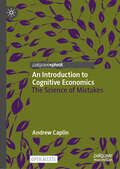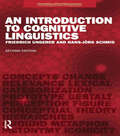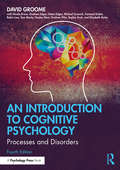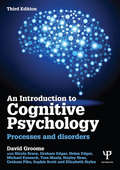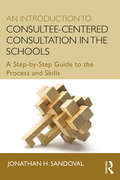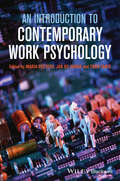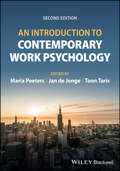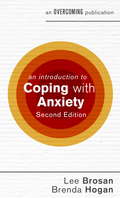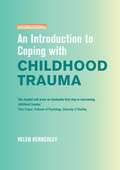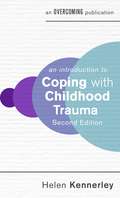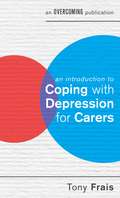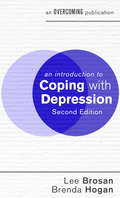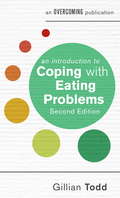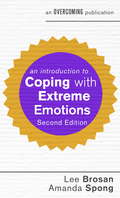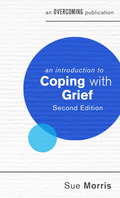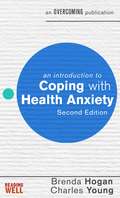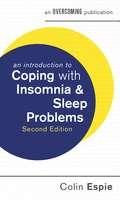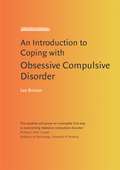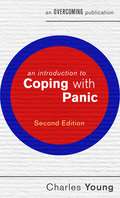- Table View
- List View
An Introduction to Cognitive Economics: The Science of Mistakes
by Andrew CaplinThis book introduces readers to “cognitive economics,” a rapidly emerging interdisciplinary science built on economic, psychological, and data scientific foundations. Throughout the book, economist Andrew Caplin provides new approaches to help scholars collaborate and solve problems that can shape economic outcomes and bridge the gap between theoretical knowledge and the real world. Divided into two parts, the first section brings readers up to speed on economic concepts that underlie decision-making mistakes, such as utility functions, subjective beliefs, and costs of learning. It also explores real-world applications, including improvements in legal decision-making, online privacy protection, and optimizing human-AI collaboration. The book also discusses the future impact of AI on the workforce and emphasizes the need for decision-making skills and financial literacy in navigating this evolving landscape. In the second section of the book, Caplin addresses the barriers to progress within social sciences, advocating for interdisciplinary cooperation and innovative measurement techniques to advance the field. The book invites readers to contribute to the development of cognitive economics. Whether you are a socially-conscious and hard-working citizen, business leader, scholar, or policymaker, this book will help you understand why cognitive economics matters to you and how you can contribute to its takeoff. This book is available open access, which means it is freely available online.
An Introduction to Cognitive Linguistics (Learning about Language)
by Friedrich Ungerer Hans-Jorg SchmidLearning About Language is an exciting and ambitious series of introductions to fundamental topics in language, linguistics and related areas. The books are designed for students of linguistics and those who are studying language as part of a wider course. Cognitive Linguistics explores the idea that language reflects our experience of the world. It shows that our ability to use language is closely related to other cognitive abilities such as categorization, perception, memory and attention allocation. Concepts and mental images expressed and evoked by linguistic means are linked by conceptual metaphors and metonymies and merged into more comprehensive cognitive and cultural models, frames or scenarios. It is only against this background that human communication makes sense. After 25 years of intensive research, cognitive-linguistic thinking now holds a firm place both in the wider linguistic and the cognitive-science communities.An Introduction to Cognitive Linguistics carefully explains the central concepts of categorizaÂtion, of prototype and gestalt perception, of basic level and conceptual hierarchies, of figure and ground, and of metaphor and metonymy, for which an innovative description is provided. It also brings together issues such as iconicity, lexical change, grammaticalization and language teaching that have profited considerably from being put on a cognitive basis.The second edition of this popular introduction provides a comprehensive and accessible up-to-date overview of Cognitive Linguistics: Clarifies the basic notions supported by new evidence and examples for their application in language learning Discusses major recent developments in the field: the increasing attention paid to metonymies, Construction Grammar, Conceptual Blending and its role in online-processing. Explores links with neighbouring fields like Relevance Theory Uses many diagrams and illustrations to make the theoretical argument more tangible Includes extended exercises Provides substantial updated suggestions for further reading.
An Introduction to Cognitive Psychology: Processes and Disorders
by David GroomeAn Introduction to Cognitive Psychology: Processes and Disorders provides a comprehensive, yet accessible, overview of the field for undergraduate students. The fourth edition has been thoroughly revised throughout to provide a comprehensive introduction to the core topics of cognition, including memory, perception, thinking, and language. Uniquely, alongside coverage of normal cognitive function, the book also includes chapters on clinical disorders such as agnosia, amnesia, and aphasia, providing a more balanced insight into the nature of cognition and its related disorders. Key features: Completely revised and updated throughout to provide a comprehensive overview of current thinking in the field Accessibly written by experienced textbook authors and academic experts, including Michael Eysenck and Sophie Scott A new chapter on Problem Solving, written by Fernand Gobet, a leading authority in the field Greater coverage of neuropsychological disorders, with additional coverage of brain imaging research Features a wealth of real-world examples throughout to bring research to life Specially designed textbook features, chapter summaries, further reading, and a glossary of key terms An Introduction to Cognitive Psychology will appeal to all students on an undergraduate psychology degree course, as well as to those studying in related clinical professions.
An Introduction to Cognitive Psychology: Processes and disorders
by David GroomeDavid Groome with Nicola Brace, Graham Edgar, Helen Edgar, Michael Eysenck, Tom Manly, Hayley Ness, Graham Pike, Sophie Scott, and Elizabeth Styles. An Introduction to Cognitive Psychology: Processes and Disorders is a comprehensive introductory textbook for undergraduate students. The third edition of this well-established text has been completely revised and updated to cover all the key areas of cognition, including perception, attention, memory, thinking and language. Uniquely, alongside chapters on normal cognitive function, there are chapters on related clinical disorders (agnosia, amnesia, thought disorder and aphasia) which help to provide a thorough insight into the nature of cognition. Key features: Completely revised and updated throughout to provide a comprehensive overview of current thinking in the field Accessibly written and including new authors, including Sophie Scott, Tom Manly, Hayley Ness, and Elizabeth Styles, all established experts in their field A new chapter on Emotion and Cognition, written by Michael Eysenck, the leading authority in the field Greater coverage of neuropsychological disorders, with additional material from the latest brain imaging research that has completely revolutionized neuropsychology Specially designed textbook features, chapter summaries, further reading, and a glossary of key terms A companion website featuring an extensive range of online resources for both teachers and students. Written to cover all levels of ability using helpful figures and illustrations, An Introduction to Cognitive Psychology has sufficient depth to appeal to the most able students while the clear and accessible text, written by experienced teachers, will help students who find the material difficult. It will appeal to any student on an undergraduate psychology degree course, as well as to medical students and those studying in related clinical professions such as nursing.
An Introduction to Consultee-Centered Consultation in the Schools: A Step-by-Step Guide to the Process and Skills (Consultation, Supervision, and Professional Learning in School Psychology Series)
by Jonathan H. SandovalDrawing on historical writings about mental health consultation and on contemporary research and theory, Jonathan Sandoval lucidly explains the consultee-centered approach to consultation. The book provides an expert foundation on which to build a training program for future school-based consultants. Written for graduate students in school psychology, counseling psychology, special education, and social work, this book is an invaluable resource for mental health professionals working in schools who wish to upgrade their professional skills and grow as reflective practitioners. Individual chapters describe different stages in the consultation process; outline the processes characterized in each stage; detail useful consultant skills; review pertinent research; discuss the ethical principles underlying practice; and suggest self-monitoring questions for student consultants. Featuring a step-by-step developmental model of the consultee-centered consultation process, this book encourages consultants to prioritize those characteristics that contribute to a consultee’s work difficulty, in addition to assessing the client more generally. By detailing this unique approach, this concise volume provides an applicable, contextualized, and strategic form of consultation, and fosters a professional-to-professional relationship distinguishable from supervision, counseling, therapy, coaching or other methods.
An Introduction to Contemporary Work Psychology
by Jan De Jonge Maria C.W. Peeters Toon W. TarisThis is the first comprehensive overview of work psychology, with coverage of classic models, current theories, and contemporary issues affecting the 21st-century worker. Examines the positive aspects of work-motivation, performance, creativity, and engagement--instead of focusing only on adverse effectsEdited by leaders in the field with chapters written by a global team of experts from the US, UK, Europe, and AustraliaDiscusses topics such as safety at work, technology, working times, work-family interaction, working in teams , recovery, job demands and job resources, and sickness absenceSuitable for advanced courses focused on work psychology as a sub discipline of work and organizational psychologyDidactic features include questions for discussion, boxes with practical applications, further reading sections, and a glossary
An Introduction to Contemporary Work Psychology
by Jan De Jonge Maria C. W. Peeters Toon TarisAN INTRODUCTION TO CONTEMPORARY WORK PSYCHOLOGY A fully updated edition of the definitive textbook Work psychology is the study of work behavior and the psychological dimensions that both produce and result from it. It has developed in recent decades into a field that takes a comprehensive view of 21st century workers and their psychological context and condition. Now fully updated to reflect the latest research and practical insights, it promises to continue as an indispensable resource for advanced courses in work psychology. Readers of the second edition of An Introduction to Contemporary Work Psychology will find: Chapters written by a global team of experts Overview of classic and current theories that comprise Work Psychology Detailed discussion of topics such as leadership, emotion work, sustainable careers, job crafting and the future of work A unique focus on positive aspects of work, including motivation, engagement, personal resources and positive workplace interventions An Introduction to Contemporary Work Psychology is ideal for advanced undergraduate and graduate students enrolled in work psychology courses, as well as for students or researchers looking for a reference or introduction to the subject. “Understanding work from various psychological perspectives has become highly relevant for all those involved and interested in the diverse and changing nature of work-life. This book is a treasury of what is important to know of current work psychology. It is timely, comprehensive, and enjoyable reading. Editors and authors have done great job and now it is time for readers to enjoy this book and its many perspectives to the world of contemporary work and organizational psychology.” —Jari Hakanen, PhD, Research professor, Finnish Institute of Occupational Health
An Introduction to Coping with Anxiety, 2nd Edition (An Introduction to Coping series)
by Brenda Hogan Leonora BrosanOvercoming app now available via iTunes and the Google Play Store.Anxiety is one of the most common mental health conditions worldwide, affecting millions of people each year. But it can be treated effectively with cognitive behavioural therapy (CBT).Written by experienced practitioners, this introductory book can help you if anxiety has become a problem. It explains what anxiety is and how it makes you feel when it becomes unmanageable or lasts for long periods of time. It will help you to understand your symptoms and is ideal as an immediate coping strategy and as a preliminary to fuller therapy. You will learn:· What anxiety is and how it develops· Physical symptoms to look out for· How to spot and challenge thoughts that make you anxious· Ways to change how you behave in order to reduce your feelings of anxiety
An Introduction to Coping with Childhood Trauma (An Introduction To Coping Ser.)
by Helen KennerleyThis is a new addition to the popular Introduction to Coping with series of Cognitive Behavioural Therapy based self-help booklets. Written by the author of the bestselling self-help titles Overcoming Anxiety and Overcoming Childhood Trauma, this new title offers valuable guidance for those who have experienced trauma as a child, be it emotional, physical or sexual. This useful self-help guide looks at the psychological impact of childhood trauma and offers some helpful strategies, based on CBT, to help the sufferer start on the road to recovery. Also contains useful information on how to get specialist help. This practical booklet will also be a valuable resource for health professionals and family members.
An Introduction to Coping with Childhood Trauma (An\introduction To Coping Ser.)
by Helen KennerleyThis is a new addition to the popular Introduction to Coping with series of Cognitive Behavioural Therapy based self-help booklets. Written by the author of the bestselling self-help titles Overcoming Anxiety and Overcoming Childhood Trauma, this new title offers valuable guidance for those who have experienced trauma as a child, be it emotional, physical or sexual. This useful self-help guide looks at the psychological impact of childhood trauma and offers some helpful strategies, based on CBT, to help the sufferer start on the road to recovery. Also contains useful information on how to get specialist help. This practical booklet will also be a valuable resource for health professionals and family members.
An Introduction to Coping with Childhood Trauma, 2nd Edition (An Introduction to Coping series)
by Helen KennerleyPractical support for how to overcome childhood traumaMany psychological and emotional problems faced by adults have their roots in childhood trauma, and this invaluable self-help guide offers advice and techniques based on cognitive behavioural therapy (CBT) for anyone who has experienced trauma as a child, be it emotional, physical or sexual.Written by an experienced practitioner, this book is for anyone who has been hurt or neglected as a child. If you are struggling with difficulties in relationships, with self-confidence or mood, this book will help you address these common experiences as an immediate coping strategy or as a preliminary to fuller therapy. The updated second edition will help you: - Understand the psychological impact of childhood trauma - Know where to turn for further help and resources - Learn useful CBT strategies to start on the road to recovery and resilience
An Introduction to Coping with Childhood Trauma, 2nd Edition (An Introduction to Coping series)
by Helen KennerleyPractical support for how to overcome childhood traumaMany psychological and emotional problems faced by adults have their roots in childhood trauma, and this invaluable self-help guide offers advice and techniques based on cognitive behavioural therapy (CBT) for anyone who has experienced trauma as a child, be it emotional, physical or sexual.Written by an experienced practitioner, this book is for anyone who has been hurt or neglected as a child. If you are struggling with difficulties in relationships, with self-confidence or mood, this book will help you address these common experiences as an immediate coping strategy or as a preliminary to fuller therapy. The updated second edition will help you: - Understand the psychological impact of childhood trauma - Know where to turn for further help and resources - Learn useful CBT strategies to start on the road to recovery and resilience
An Introduction to Coping with Depression for Carers
by Tony FraisAn indispensable guide offering insight and support to carers of people with depression Looking after a person with depression can often leave carers emotionally and physically exhausted. This short, straightforward and easily understandable guide offers valuable advice on how carers can: - better understand the nature of depression and how it affects both patient and carer - have a clearer understanding of the treatment options for the patient, including medication and therapy - lessen the impact of the illness on the carer's life - find the help and support they need - maintain their own well-being whilst supporting the patient through to recovery and beyond Although aimed at the carer, this is a guide that is equally valuable to the patient themselves and to their wider family and friends in promoting a better understanding of the experience of depression.
An Introduction to Coping with Depression for Carers (An Introduction to Coping series)
by Tony FraisAn indispensable guide offering insight and support to carers of people with depressionLooking after a person with depression can often leave carers emotionally and physically exhausted. This short, straightforward and easily understandable guide offers valuable advice on how carers can:- better understand the nature of depression and how it affects both patient and carer- have a clearer understanding of the treatment options for the patient, including medication and therapy- lessen the impact of the illness on the carer's life- find the help and support they need- maintain their own well-being whilst supporting the patient through to recovery and beyondAlthough aimed at the carer, this is a guide that is equally valuable to the patient themselves and to their wider family and friends in promoting a better understanding of the experience of depression.
An Introduction to Coping with Depression, 2nd Edition (An Introduction to Coping series)
by Lee Brosan Brenda HoganOvercoming app now available.Depression is the predominant mental health condition worldwide, affecting millions of people each year. But it can be treated effectively with cognitive behavioural therapy (CBT).Written by experienced practitioners, this introductory book explains what depression is and how it makes you feel. It will help you to understand your symptoms and is ideal as an immediate coping strategy and as a preliminary to fuller therapy. You will learn:· How depression develops and what keeps it going· How to spot and challenge thoughts that maintain your depression· Problem solving and balanced thinking skills
An Introduction to Coping with Depression, 2nd Edition (An\introduction To Coping Ser.)
by Lee Brosan Brenda HoganOvercoming app now available via iTunes and the Google Play Store.Depression is the predominant mental health condition worldwide, affecting millions of people each year. But it can be treated effectively with cognitive behavioural therapy (CBT).Written by experienced practitioners, this introductory book explains what depression is and how it makes you feel. It will help you to understand your symptoms and is ideal as an immediate coping strategy and as a preliminary to fuller therapy. You will learn:· How depression develops and what keeps it going· How to spot and challenge thoughts that maintain your depression· Problem solving and balanced thinking skills
An Introduction to Coping with Eating Problems, 2nd Edition (An Introduction to Coping series)
by Gillian ToddEating problems, including anorexia nervosa and bulimia nervosa, can have a devastating impact on sufferers as well as their friends and family. This self-help guide is written by a consultant psychotherapist with extensive experience of treating eating disorders and will help you identify an eating disorder and develop a toolkit of strategies to help you take steps towards overcoming the disorder. It also includes a chapter offering useful guidance for family members.This updated second edition will help you:· Understand how eating disorders develop and what keeps them going· Find the motivation to change · Change how you eat· Challenge negative thinkingThe Introduction to Coping series offers valuable guidance for those seeking help for emotional or psychological problems such as depression and anxiety. Each book gives useful background information and suggests techniques to change unhelpful patterns of behaviour and thinking using cognitive behavioural therapy (CBT) techniques. CBT is recommended internationally to treat a wide range of emotional, psychological and physical conditions including eating disorders.
An Introduction to Coping with Extreme Emotions: A Guide to Borderline or Emotionally Unstable Personality Disorder (An Introduction to Coping series)
by Lee Brosan Amanda SpongMany people suffer from extreme emotions with around 2% of people being diagnosed with Borderline Personality Disorder. It is a very troubling condition which causes abnormal and unstable behaviour including overwhelming feelings of distress and anger, which may lead to self-harming, damage or destruction of relationships and, at times, loss of contact with reality. Through clinically proven dialectical behaviour therapy (DBT) techniques, this book will help you to control your extreme emotions. You will learn:· The symptoms of personality disorder· Different ways of coping with overwhelming emotions· How to increase your emotional resilience from day to day
An Introduction to Coping with Grief, 2nd Edition (An Introduction to Coping series)
by Sue MorrisGrief is a natural reaction to loss but in some cases it can be devastating, preventing you from moving on in your life and affecting your relationships and work. This fully updated self-help guide offers an examination and explanation of the grieving process and outlines clinically-proven strategies, based on cognitive behavioural therapy (CBT), to help you adjust to life without a loved one:· Knowing what to expect when you are grieving· Understanding the physical and psychological reactions to grief· Practical coping strategies to help you deal with your loss
An Introduction to Coping with Health Anxiety, 2nd edition (An Introduction to Coping series)
by Brenda Hogan prof Charles YoungLearn how to control your health anxietyHealth anxiety affects many people across the world - a preoccupation with physical illness that is equally bad for your mental health. This can be worsened in times of global panic about pandemics. This self-help guide explains how health anxiety develops and what keeps it going. This updated edition gives you clinically proven cognitive behavioural therapy (CBT) techniques to help you challenge the way you think and behave, such as:- What health anxiety is and how it develops - Physical symptom - How to spot and challenge thoughts that make you anxious. - Reducing your focus on illness- How to spot and challenge thoughts that make you anxious- Reducing your focus on your body and on illness
An Introduction to Coping with Health Anxiety, 2nd edition: A Books on Prescription Title
by Brenda Hogan Charles YoungLearn how to control your health anxietyHealth anxiety affects many people across the world - a preoccupation with physical illness that is equally bad for your mental health. This self-help guide explains how it develops and what keeps it going. This updated edition gives you clinically proven cognitive behavioural therapy (CBT) techniques to help you challenge the way you think and behave:· How to spot and challenge thoughts that make you anxious· Reducing your focus on your body and on illness
An Introduction to Coping with Insomnia and Sleep Problems, 2nd Edition (An Introduction to Coping series)
by Colin EspiePoor sleep can have a huge impact on our health and wellbeing, leaving us feeling run-down, exhausted and stressed out. This self-help guide explains the causes of insomnia and why it is so difficult to break bad habits. This updated edition gives you clinically proven cognitive behavioural therapy (CBT) techniques for improving the quality of your sleep:· Keeping a sleep diary· Setting personal goals· Improving your sleep hygiene· Dealing with a racing mind· Making lasting improvements to your sleeping and waking pattern
An Introduction to Coping with Obsessive Compulsive Disorder, 2nd Edition
by Leonora BrosanObsessive Compulsive Disorder (OCD) affects thousands of people in the UK and it can be effectively treated with Cognitive Behavioural Therapy.Written by an experienced practitioner, this introductory booklet explains what OCD is and how it makes you feel. It will help the reader to understand their symptoms and is ideal as an immediate coping strategy and as a preliminary to fuller therapy. The book covers:The different forms of OCD, how it develops and what keeps it going.Case studies.The roles that your compulsions and thoughts play.Different kinds of treatment.
An Introduction to Coping with Obsessive Compulsive Disorder, 2nd Edition (An Introduction to Coping series)
by Leonora BrosanObsessive compulsive disorder (OCD) affects millions of people each year. But it can be treated effectively with cognitive behavioural therapy (CBT). Written by an experienced practitioner, this introductory book explains what OCD is, what different forms it takes and how it can make you feel. It will help you to understand your symptoms and is ideal as an immediate coping strategy and as a preliminary to fuller therapy. You will learn:· How OCD develops and what keeps it going· The role that intrusive thoughts play in your compulsive behaviour· Cognitive skills and exposure and response prevention techniques
An Introduction to Coping with Panic, 2nd edition
by Charles YoungLearn how to manage your feelings of panic Panic disorder and panic attacks affect many people across the world. This self-help guide explains how panic develops and what keeps it going. This updated edition gives you clinically proven cognitive behavioural therapy (CBT) techniques to help you recognise the link between your thoughts and your panic:How to spot and challenge thoughts that make you panicKeeping a panic diaryLearn calming breathing techniques
